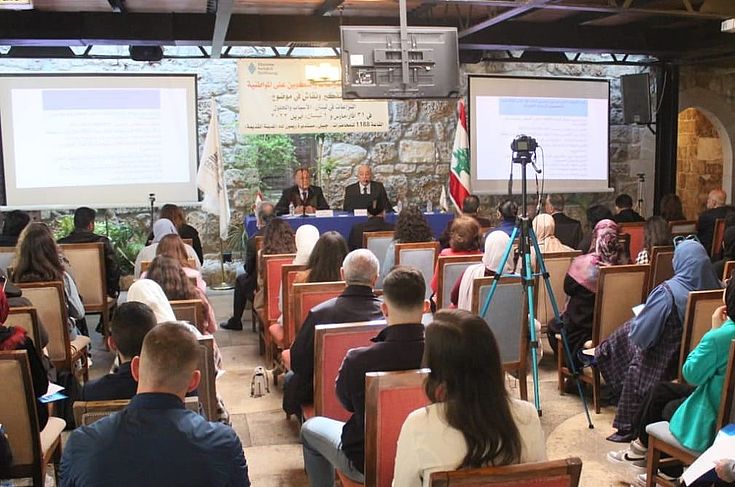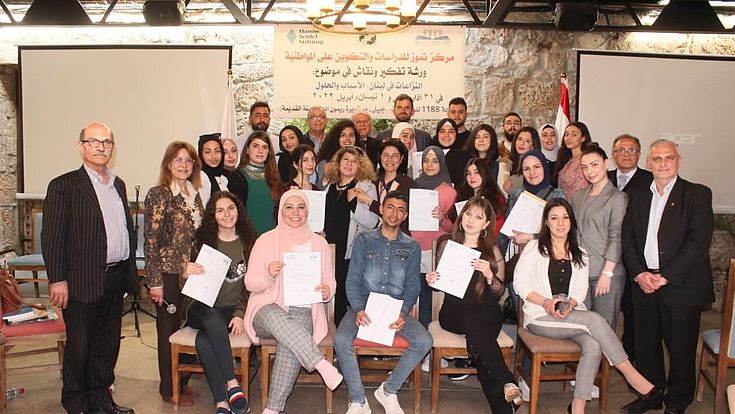The opening session began with a speech of the workhop manager Dr.Mustafa Helweh and welcome speech by the President of "Tammuz" Center, Dr. Adonis El Akra, followed by welcome speech by Mr. Kristof Duwaerts, Regional Officer of the "Hanns Seidel" Foundation in Jordan, as well as a speech of its representative in Lebanon Mr.Antoine Ghorayeb and a speech of the Workshop coordinator: Dr.Hanna El Hai. The workshop included six sessions, which focused on the approach to the problem presented in its various aspects.
What's happening at HSS?
Conflict resolution
Conflicts in Lebanon - Causes and Solutions
The workshop aims to explain the causes of conflicts between factions and parties that led to the ruin of the country, so that the rising generation may learn from this bloody history full of wars. Reconciliation among all components of society is the basis for coexistence to build a state of citizenship, where everyone is equal in rights and duties.
The Workshop has enabled the participants to analyse and evaluate the information and advices given and has encouraged them to engage in dialogue and to identify the problems of the "Conflicts in Lebanon". It has also provided them with national tools to find solutions to this problem, and has offered them opportunities to broaden their experience and develop their personal skills to reach their goals.

The information given to the participants, in addition to the discussions that took place between them, enabled them to view the most important causes of conflict in the modern history of Lebanon and to prepare proposals and recommendations to address this scourge and build a new future for the rising generations, including:
- Deducing lessons, based on simulating our reality, to establish close memories through openness and frankness, in the light of which we can chart the future course of our generations.
- Calling for the liberation of the areas of conflict and for a kind of historical reconciliation between the various segments of Lebanese society.
- Noting the internal and external changes at the intellectual, cultural, political, economic and social levels in all regions, and among all population groups, and moving towards a reading that adopts debate as a law and a platform.
- Adopting scientific, critical and objective methodological readings and approaches that are different from the conciliatory historical stillness, and uncovering the hidden or silent in history, with multiple narrations, and from different sources.
- Working on devising new scientific problems to liberate historical writing from sectarian, tribal, leadership, family and familial narratives.
- Opening new horizons for scientific research in the areas of documentation, and the use of modern technology in all areas of research.

